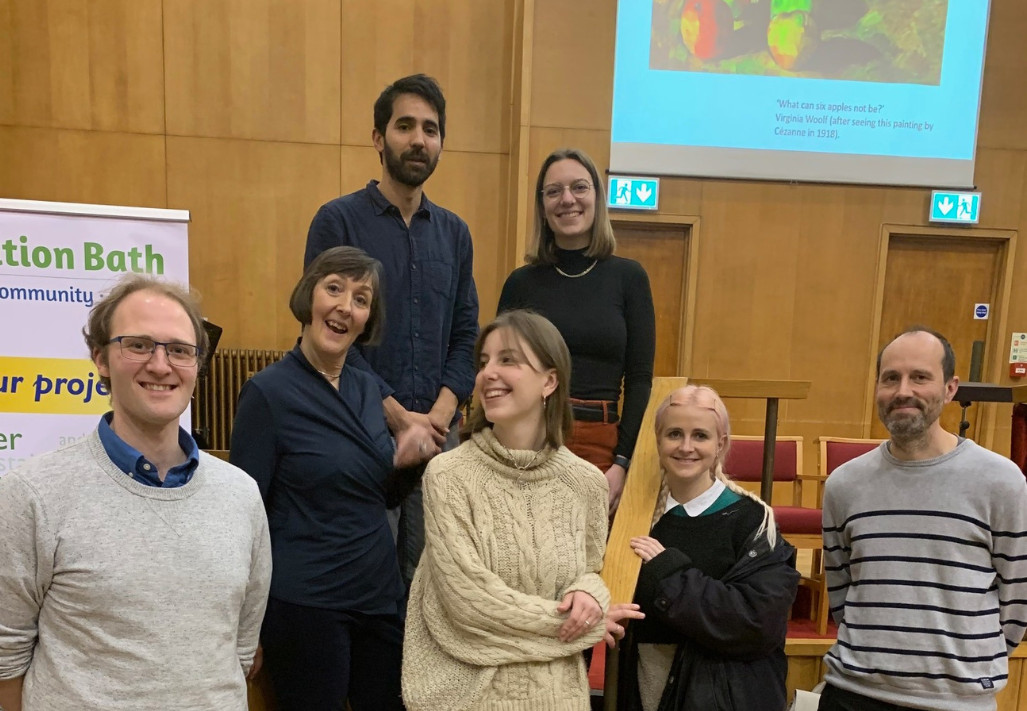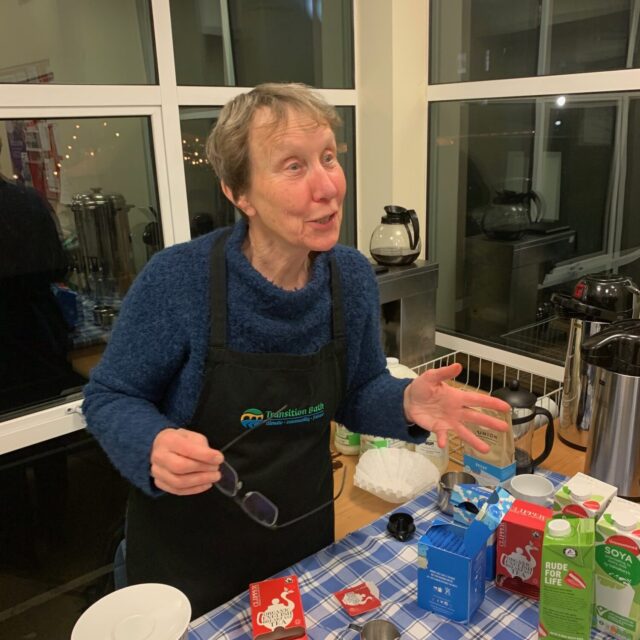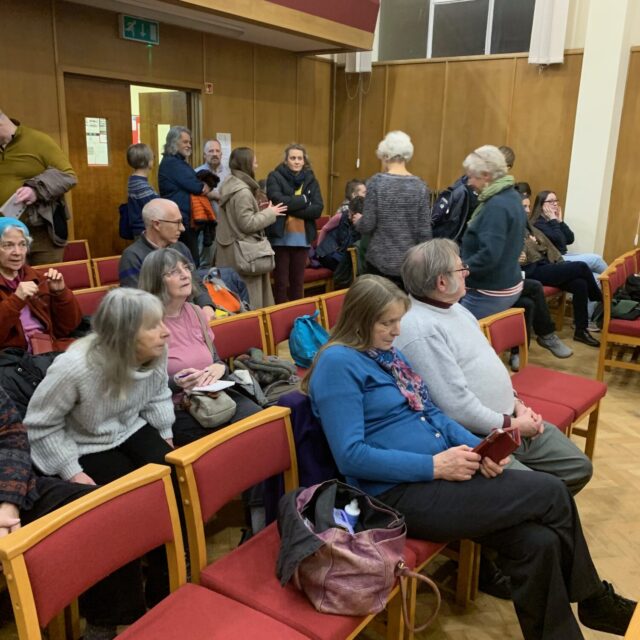
The Salvation Army at Bath Citadel in Green Park Road hosted a fascinating series of mini-talks by Transition Bath on Wednesday this week called Sustainability Shorts. The second series of talks in a programme curated by Transition Bath featured six speakers who each talked for 10 minutes on a sustainability theme. The idea is to put ideas into the sustainability melting pot, those that will provoke debate and make people think about the positive action that they can take to mitigate the climate crisis.
The first speaker Anthony Simpson, who has an MSc in Renewable Energy and Sustainability, talked about the impacts of our food choices, especially comparing meat-based diets to plant-based. He highlighted how a plant-based diet was very dramatically the single most effective way to reduce your carbon consumption through food and how reducing or cutting out the meat we consume was a very significant factor in reducing the impact of lifestyle on the carbon we produce.
The second speaker Marieke Hammes, a specialist in sustainable business and carbon management, explained how important it is to define a sustainable business model within business start-ups, rather than once the business is established, the value of defining a clear purpose when a business is set up, aligning yourself with the relevant certification, and how taking care of the people within your organisation is an essential foundation for a business. She also talked of how letting go of your perfectionism can be constructive.
Ella Milburn proposed with her Foraging for the Future talk a wild alternative to the global food systems that dominate our food lives. She talked of how there is a massive amount of wild foods growing in accessible places around us, and that if you take advantage of this by foraging it will dramatically shorten the food chain. Cherries, figs, plums, sloes, elderberries, alliums, wild garlic, three-cornered leeks, field garlic and wild mushrooms are just some of the produce that is easily available in the green places around us. Collecting them can boost our diets and save us money, as long as they are collected in moderation, based on availability and on what you can use. She also told us that the wild types of all food taste better!
After tea and biscuits served by Lyn Barham in a very fetching Transition Bath apron, Helen Haddon talked about the EcoTogether for Sustainability project. She explained about the ‘spiral of silence’ where people don’t address the issues that are causing them anxiety in their everyday lives. Eco Together galvanises action by allowing groups of local people to work together, and to feel empowered to make choices in their lives to offset the threat to the planet. Meeting up over five sessions around the themes of energy, transport, food resources and community, groups follow a supportive and structured community programme where people become motivated to act to change their behaviour to make a difference to climate change,
The next speaker was Izzy Sturges who introduced the audience to the theme of Peat Bogs and Sustainability. Izzy explained how peatlands are formed through accumulated plant matter and how peat is extracted as bricks, which are then dried and processed as an energy source. Her ethnographic fieldwork at the Abbeyleix Bog Project in Ireland had shown how the peat bog there had been restored to ‘peat perfect’ condition. It had also made her understand how the traditional and subsumed-by-nature world of peat bogs is one of the most overlooked wetland habitats. What’s more the unique environments of peatlands have spawned communities who make money out of peat and also result in residents having a grounding connection to these wild places.
The final speaker, Michael Malay, targeted his presentation on how joy and pleasure is integral to activism and how art can inspire, move and heal. His image-based presentation brought in works by artists who allow you to revel in the joy of their creation and feel moments of enlightenment and uplift. His particular favourite was a Cezanne painting of seven apples, that nourished the viewer as they were observed, and reminded him of the taste of apples on summer days. He used a quote from Belarusian journalist Svetlana Alexievich, “When I see a garden in flower then I believe in god for a second”. A member of the audience pointed out how his presentation was connected to tenderness, rather than brutality, in drawing on the spiritual and connective power of art.
The next Sustainability Shorts is in March when there will be six more sustainable revelations from speakers from different areas – watch out for more details on our website.
The main image (from left) shows Transition Bath organiser Alexander Coles, Helen Haddon, Michael Malay, Izzy Sturges, Marieke Hammes, Ella Milburn and Anthony Simpson.

